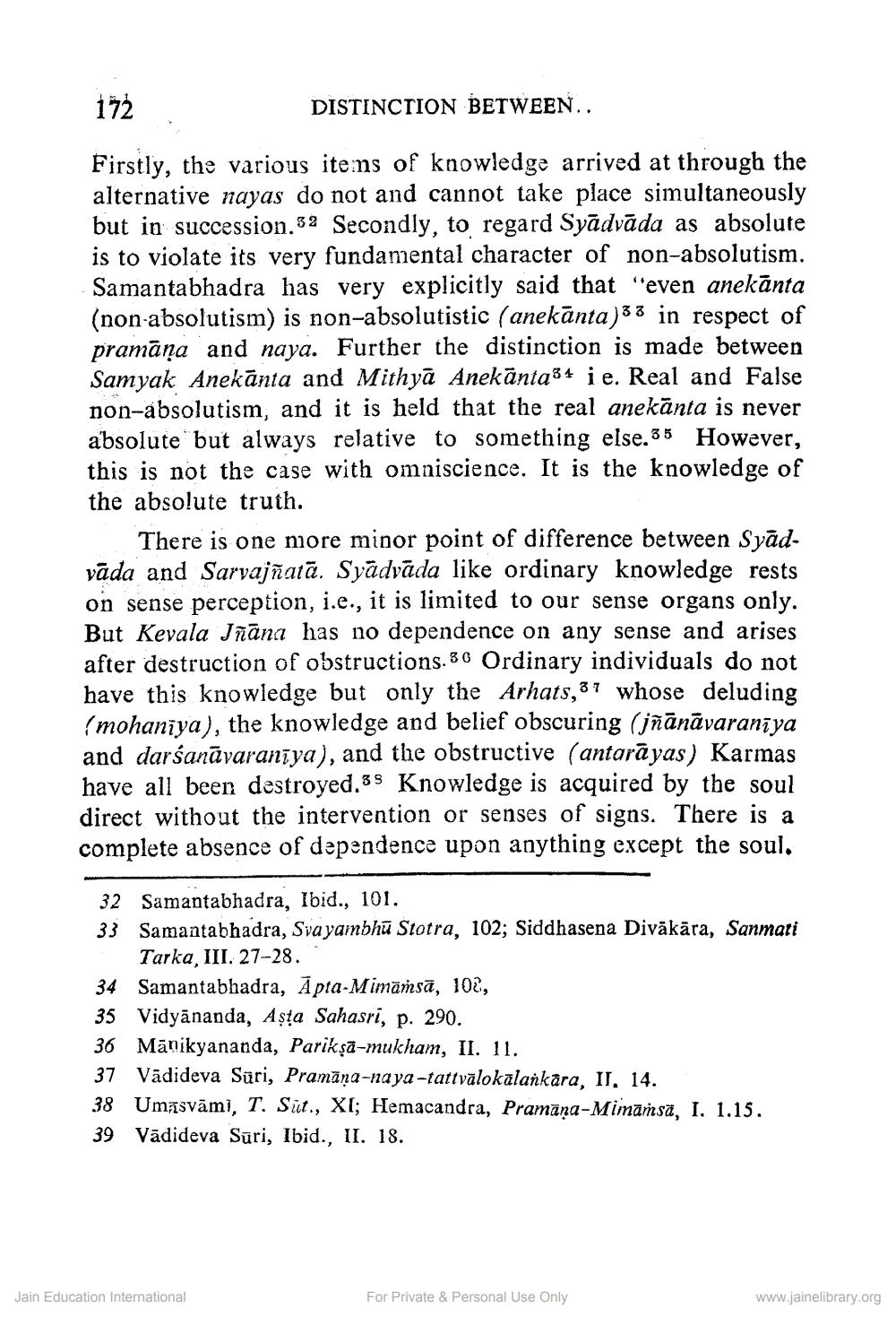________________
172
Firstly, the various items of knowledge arrived at through the alternative nayas do not and cannot take place simultaneously but in succession.32 Secondly, to regard Syādvāda as absolute is to violate its very fundamental character of non-absolutism. Samantabhadra has very explicitly said that "even anekānta (non-absolutism) is non-absolutistic (anekanta) 33 in respect of pramana and naya. Further the distinction is made between Samyak Anekanta and Mithya Anekanta ie. Real and False non-absolutism, and it is held that the real anekanta is never absolute but always relative to something else. 35 However, this is not the case with omniscience. It is the knowledge of the absolute truth.
DISTINCTION BETWEEN..
There is one more minor point of difference between Syadvada and Sarvajñatā. Syādvāda like ordinary knowledge rests on sense perception, i.e., it is limited to our sense organs only. But Kevala Jñana has no dependence on any sense and arises after destruction of obstructions. 36 Ordinary individuals do not have this knowledge but only the Arhats,37 whose deluding (mohaniya), the knowledge and belief obscuring (jñānāvaranīya and darśanavaraniya), and the obstructive (antarayas) Karmas have all been destroyed.3s Knowledge acquired by the soul direct without the intervention or senses of signs. There is a complete absence of dependence upon anything except the soul.
32 Samantabhadra, Ibid., 101.
33 Samantabhadra, Svayambhu Stotra, 102; Siddhasena Divākāra, Sanmati Tarka, III. 27-28.
34 Samantabhadra, Apta-Mimaṁsā, 102,
35 Vidyananda, Aṣṭa Sahasri, p. 290.
36 Manikyananda, Parikṣa-mukham, II. 11.
37 Vadideva Suri, Pramana-naya-tattvālokālankara, II. 14.
38 Umasvāmi, T. Sut., XI; Hemacandra, Pramana-Mimämsä, I. 1.15. 39 Vadideva Suri, Ibid., II. 18.
Jain Education International
For Private & Personal Use Only
www.jainelibrary.org




